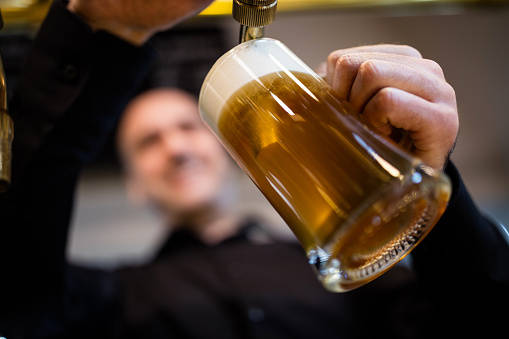Perspectives on work, the sequel: What a way to ‘retire’!
In June, after visiting Zierikzee, a small medieval town in southwest Holland, I wrote “Perspectives on Work: 4,000 miles away and 750 years ago” about seeking meaningfulness in your life’s work. Here’s the link: eliamdur.com/index.php/blog/page/3.
Back in The Netherlands this past month, another such town — this one farther inland — incubated today’s thought: What a way to “retire”!
On the southern bank of the Maas River — one of three major east-west waterways flowing through central Holland that have been major factors in the region’s centuries-long prominence in commerce — lies Ravenstein, an endearingly charming and cozy city of 8,400 inhabitants. Its castle was built in 1358, the municipality established in 1368, and city rights granted in 1380. Historic preservation being a serious matter here, you can walk through much of that history today, which is what my wife, our dear friends, Ingrid and Herman, and I did last month, as we did in Zierikzee in June.
Ravenstein’s town square had been busy all day with an outdoor Christmas market where vendors were selling all sorts of things, with the monies going to charities. A chorus was singing seasonal songs while logs burned in wrought iron containers throughout the square.
As darkness fell that winter’s eve, and scarves were wrapped more snugly, thousands of glass-enclosed candles, spaced several meters apart, illuminated both sides of many of the narrow cobblestone streets where houses, which had been erected before the Pilgrims reached our shores, still stand. It lit up as a whole system of luminescent pathways guiding our steps through the Middle Ages — on the eve of 2017 — and it was a visual spectacle.
One of those winding streets leads up to a windmill built in 1875 on one of the bastions of the former fortifications. It still processes bearded wheat (spelt) today.
Guided by two friendly gentlemen who operate it just as it was run 152 years ago, we were shown the workings of the mill: all five levels, accessible only by the steepest sets of narrow, ladderlike stairs you ever saw, which were scary enough on the way up, but mortifying on the way down! Anyway, back on the ground, we also discovered within the mill a new local microbrewery in its first year of existence. We didn’t need much coaxing.
What we discovered, though, was not just a small brewery making small batches of six different brews (four in any given season). Wilskracht, the brewery’s name and its beers’ brand, means “willpower,” a great name for a brewery owned by two guys coincidentally named Wil.
We also discovered its triple-brewed, Wilskracht Bastion, the first-prize winner in the annual competition in Braband, one of Holland’s 12 provinces. That’s a big deal, considering this happened in only its first six months of operation in a region where people really know their beer. For what it’s worth, they’ve got my vote, too.
But this is just the backdrop for the real story today, the story for this “Career Coach” column. Striking up a conversation with Wil van Haren, a gregarious and hospitable Dutchman (or is that redundant?), I not only learned something about brewing, but found myself talking to a prime example of what we call a “retirement career.”
With so many senior workers finding the idea of total inactivity disdainful, the most asked question is not what to do after retirement, but what do during it. Here’s van Haren’s answer.
By trade, he’s a microbiologist with more than 30 years in pharmaceuticals, a strong qualification for brewing beer. Now in his mid-50s, two of his three kids are out of school, and the third is on the way.
So, with his financial goals changing and most of his financial responsibilities met, the time for Wilskracht has arrived. But the idea, said van Haren, was something he dreamed about since the beginning of his career. He still consults in the pharmaceutical field, commuting an hour to Amsterdam three days a week (“I still have one tuition to pay.”) while working three days a week at his brewery.
First prize for Bastion wasn’t van Haren’s only notable accomplishment; he’s actually making a bit of a profit in his very first year, which will pave the way for further innovation when he gives up the corporate life not long from now. This is the result of a long-held vision, true passion, solid planning, realistic goals, smart strategies and excellent operations.
So while Wil and Wil – and perhaps some family members — continue building Wilskracht, making a profit may not be their first priority. Making great beer will be.
What a way to “retire”!
Career Coach and Corporate Adviser Eli Amdur has been authoring his weekly “Career Coach” column since 2003, and he is the author of his acclaimed career advice book, “It’s Not So Far From Here to There: The thinking person’s guide to well-managed career.” Adjunct professor of two graduate-level leadership courses at Fairleigh Dickinson University in New Jersey, he also is active on the speaker circuit, delivering presentations on today’s critical employment and leadership issues. Visit his website at amdurcoaching.com.







